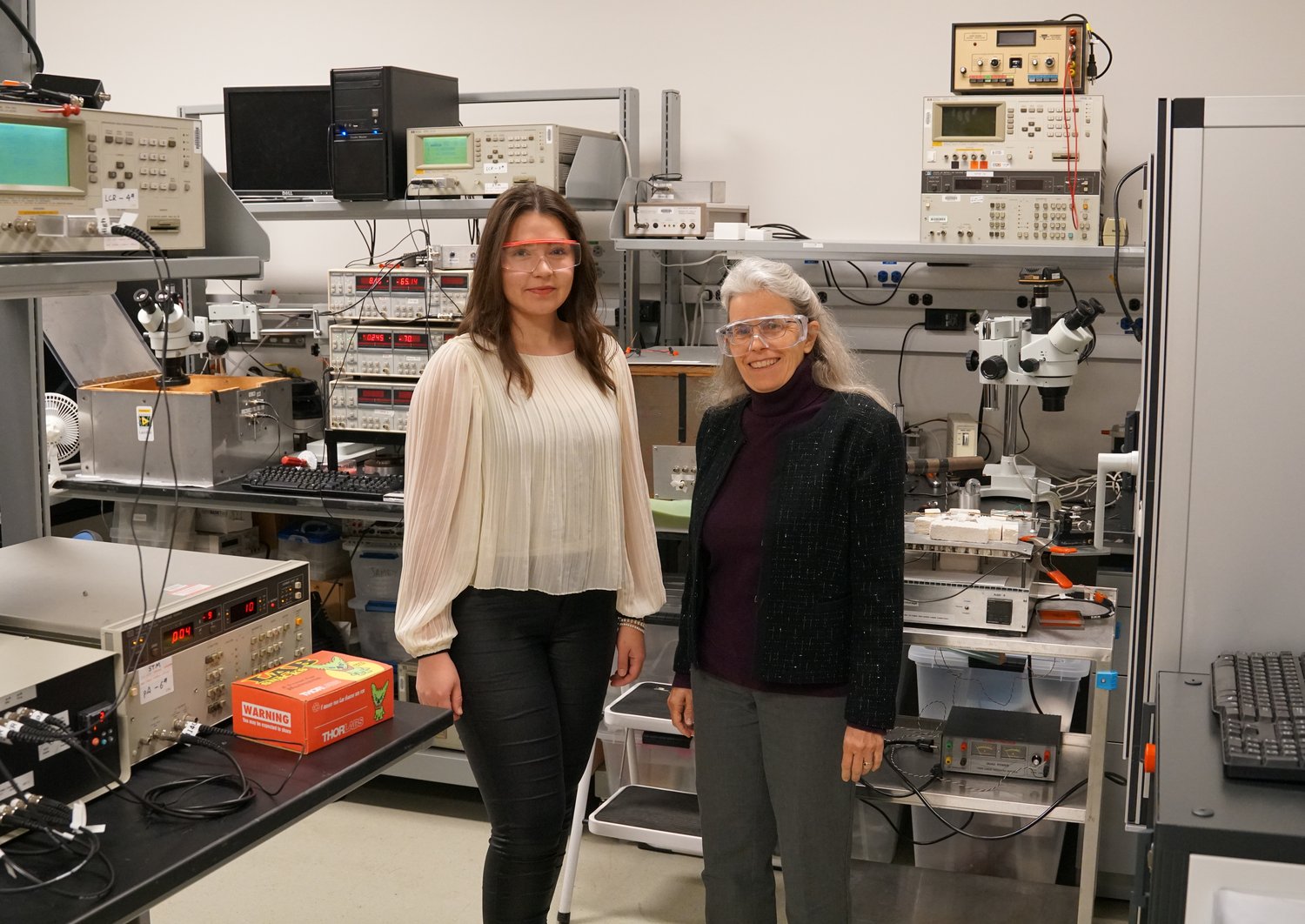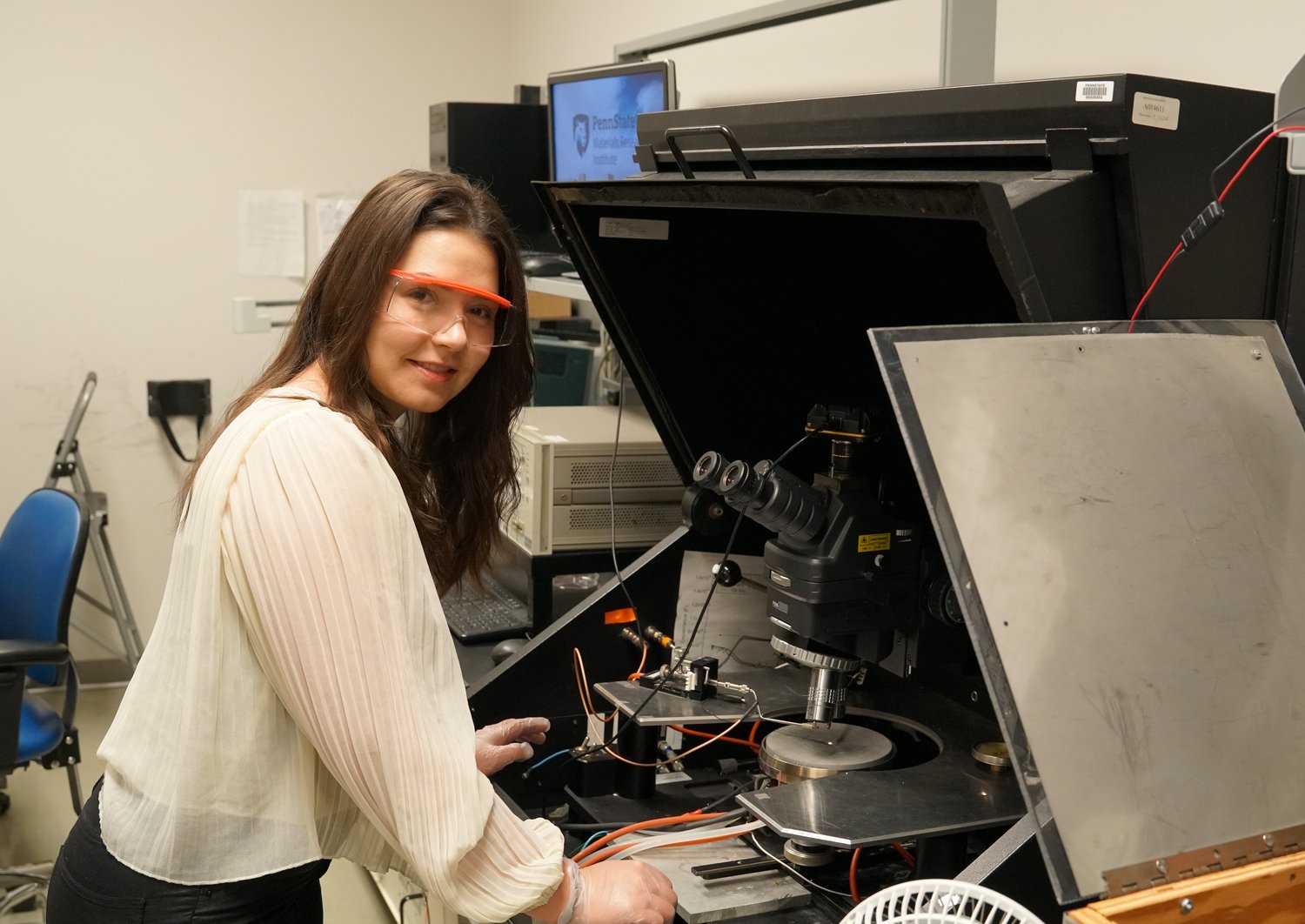At Silicon Austria Labs (SAL), around 300 researchers and employees from 40 nations develop innovative technologies in the field of electronic based systems. The international team works on over 100 projects with industrial and scientific partners from all over the world. So, SAL also fosters international research stays for their employees. This is how Madeleine Petschnigg, Junior Scientist at SAL in Villach, joined the team of Prof. Susan Trolier-McKinstry at the Materials Research Institute at Penn State to expand her knowledge on the reliability of ceramic thin films, that can make very small motions for applications that require precise control.
Lead zirconate titanate based thin films are the key element to many piezoelectrically actuated micro devices including micromachined transducers, mirrors, pumps and many others. The application fields reach from focused ultrasound devices for medical applications, to inkjet printheads for industrial printers to adjustable mirrors for both LIDAR and space applications. To ensure proper functioning of the actuation layer over the device’s lifetime, it is important to understand the stability and degradation behavior of the relevant properties.
Madeleine Petschnigg states about her work at the university: “Ferroelectric ceramics, like lead zirconate titanate, are fascinating materials with amazing properties. Considering the utilization in actual devices, the response of the material to extended actuation becomes extremely important. Working towards a better understanding of factors governing their long-term stability, facilitates the development of new devices with improved performance. I highly appreciate having the great opportunity to collaborate with Penn State and being a graduate student in Prof. Susan Trolier-McKinstry’s research group.”
Prof. Trolier-McKinstry about Madeleine’s work: “It has been a real pleasure to have Madeleine Petschnigg as a graduate student at Penn State. Our research group specializes in applying fundamental materials science to technologically relevant piezoelectric and ferroelectric films. Madeleine is building on our understanding of the factors that control the long-term stability of the properties of lead zirconate titanate actuator films, as well as their lifetime under electrical fields. In particular, her work will establish the effect of film deposition method on the lifetime.”
Mohssen Moridi, Head of Research Division Microsystems at SAL, about the international exchange: “I would like to express my sincere appreciation for the strong collaboration with Penn State, especially in working with PhD students. Apart from gaining technical experience in the research group under the supervision of Prof. Susan Trolier-McKinstry, the position fosters the knowledge sharing and further development in the field of piezoelectric thin films.”
After her research stay, Madeleine will return to Austria to finish her PhD degree and continue her research on ferroelectric thin films at SAL in Villach. She will also work in SAL’s cleanroom facilities, which are currently being expanded to around 1,500 m². Madeleine hopes to contribute to the field and push the boundaries to even better device performance.







